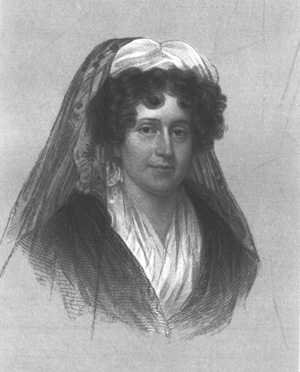Emma Willard (Emma Willard)

In 1807, Emma Willard left Berlin and briefly worked in Westfield, Massachusetts, before accepting a job offer at a female academy in Middlebury, Vermont. She held the position of principal at the Middlebury Female Seminary from 1807 to 1809. However, she was unimpressed by the material taught there and opened a boarding school for women in 1814, in her own home. She was inspired by the subjects her nephew, John Willard, was learning at Middlebury College and strived to improve the curriculum that was taught at girls’ schools. Willard believed that women could master topics like mathematics and philosophy rather than just subjects taught at finishing schools. This passion for women’s education led her to fight for the first women’s school for higher education. Her success inspired her to share her ideas on education and to write A Plan for Improving Female Education in 1819, a pamphlet that she presented to the members of the New York Legislature. Her plan included a proposal for a women’s seminary to be publicly funded just as men’s schools were. Emma Willard did not receive a response from the legislators, who believed women’s education to be contrary to God’s will. Willard finally received support from New York Governor DeWitt Clinton, who invited her to open a school there. Originally Willard opened an institution in Waterford, New York but she did not receive the promised financial support and therefore moved her school to Troy, New York, where she received more support and funding. The Troy Female Seminary opened in September 1821, for boarding and day students. This was the first school in the United States to offer higher education for women. The curriculum consisted of the subjects she had longed to include in women’s education: mathematics, philosophy, geography, history, and science. Emma Willard led the school to success, and in 1831, the school had enrolled over 300 students. The school attracted students from wealthy families or families of high position. Although most of the students would still end up as housewives, Willard never hindered her students’ pursuit towards women’s education and continued to fight for their rights. Despite her reputation today in women’s history, Willard was not a supporter of the women’s suffrage movement during the mid-19th century. Willard believed that women’s education was a much more important matter.
When Emma Willard addressed the New York State Legislature in 1819, the year before, for example, Thomas Jefferson wrote a letter in which he suggested women should not read novels “as a mass of trash” with few exceptions. “For like reason, too, much poetry should not be indulged.” Emma Willard told the legislature that the education of women “has been too exclusively directed to fit them for displaying to advantage the charms of youth and beauty”. The problem, she said, was that “the taste of men, whatever it might happen to be, has been made into a standard for the formation of the female character.” Reason and religion teach us, she said, that “we too are primary existences… not the satellites of men.” Emma Willard died on April 15, 1870, in Troy, New York and was interred at Oakwood Cemetery.
Born
- February, 23, 1787
- USA
- Berlin, Connecticut
Died
- April, 04, 1870
- USA
- Troy, New York
Cemetery
- Oakwood Cemetery
- Troy, New York
- USA



